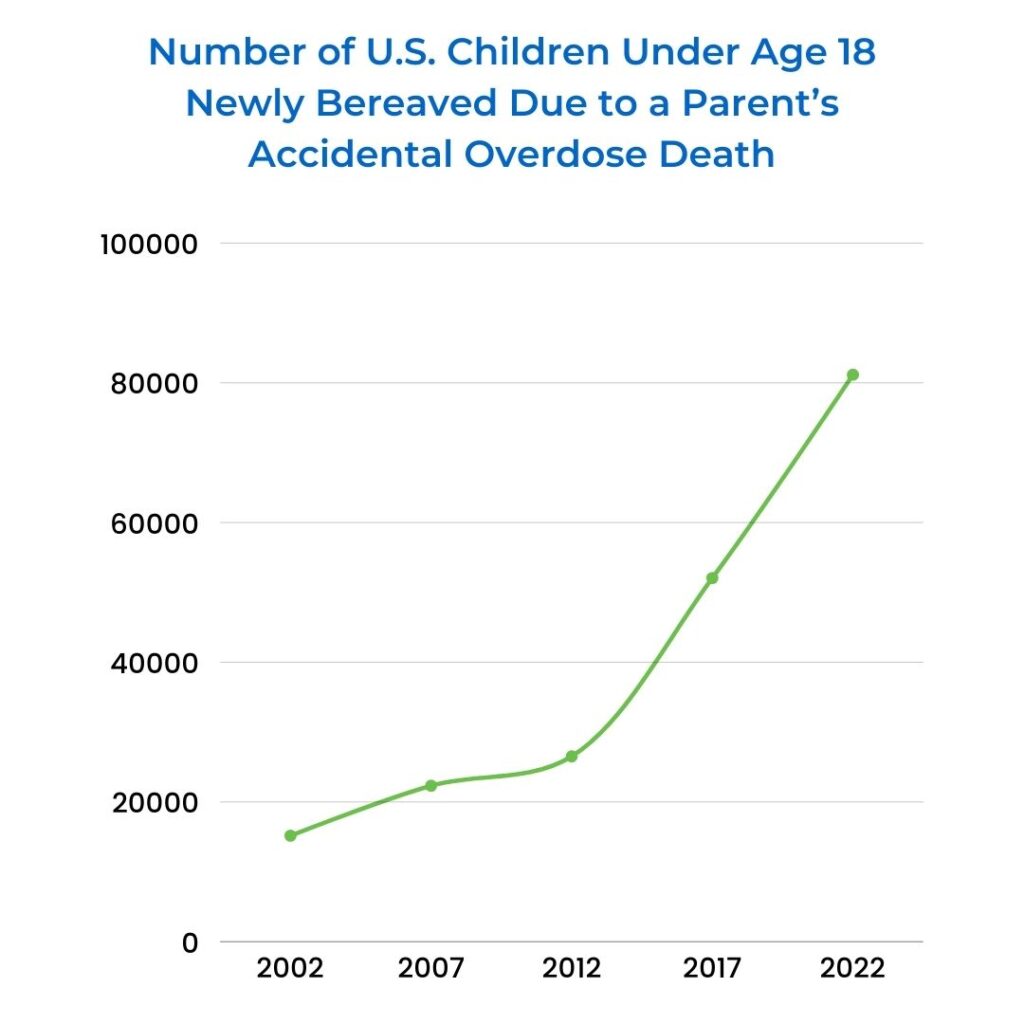News
The Change in Accidental Overdose Deaths from 2002 to 2022
August 29, 2024
How changes in accidental overdose deaths is impacting childhood bereavement.
As grief professionals, we are acutely aware of the impact accidental overdose deaths have on the children and families we serve. Since the onset of the opioid epidemic and, more recently, the rise of fentanyl-related deaths, there has been increased urgency behind this issue. In this blog post, we quantify how these changes impact childhood bereavement.
Using our Childhood Bereavement Estimation Model® (CBEM), we explored changes in U.S. bereavement rates due to a parent’s accidental overdose death from 2002 to 2022. What we found is sobering and saddening. For children under the age of 18, bereavement estimates increased 3.5 times. In 2002, accidental overdose deaths accounted for 6.5% of the deaths experienced by bereaved children (~15,000). In 2022, this increased to 23.4% (~81,000).
National CBEM Snapshot results reflect increases in every state, including Colorado, where child bereavement due to a parent’s accidental overdose was more than 2.5 times over the 20-year period. The 2002 and 2022 comparisons reveal a remarkable tragedy.
- The highest percentage in 2002 was 14.2% in New Mexico.
- The highest percentage in 2022 was 40.3% in West Virginia—2.8 times higher.
- In 2022, all but five states had values above 2002’s highest percentage of 14.2%.

Grief following an accidental overdose death brings complications and complexities that require thoughtful interventions. By providing these families with comprehensive and compassionate support, we play a role in healing and help prevent future substance misuse.
As a community dedicated to changing the trajectory for bereaved youth, we can make a difference. Here are some suggestions:
- Pursue local and state opioid settlement funds to ensure postvention services are available for those in need
- Dismantle stigma associated with substance-related loss by raising awareness about the needs of the bereaved
- Equip your team with training and resources to approach care for these youth with thoughtful intention
